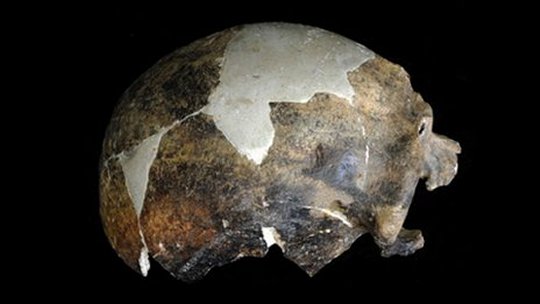
A skull from China could be the oldest documented evidence of violence between humans.
There’s no question that we humans have been a violent species. All you need to do is watch the nightly news or any given blockbuster movie that’s short on plot, but high on explosions. One day, we may outgrow our violent nature if we are lucky. But have you ever wondered what the very first human-on-human violence was about? It might have been over women or something else entirely. Well, we may never know about the very first spark of human violence, but a skull from China may be the oldest documented piece of evidence of violence between humans that we have.
The skull belonged to someone who lived 150,000-200,000 years ago and they suffered blunt force trauma to the right temple, which may have been from a projectile. The sex of this victim is unknown, but they did survive because the injury was healed by the time they died. The skull was discovered in a cave near Maba, southern China, in 1958. At some point, before it became buried, a large rodent gnawed on the bone, removing a large section of the face.
Prof Trinkaus, part of an international team that re-examined the specimen recently, described the fracture in the right temple region as the result of an impact that was “very directed, very localized.” It may have been a simple matter of being hit with a stone, which could produce this type of fracture.
Whether this injury came from an argument, a hunting accident, or a fall, we may never know, but the fact that this individual survived, (along with other human fossils) suggests that they may have had a care system in place where humans cared for one another and were helped to heal.









What’s the big deal here? Nearly all animals, and certainly all the apes, exhibit violence against each other.
Yes, it is a huge deal. The natur eof science dpends on this membrane.